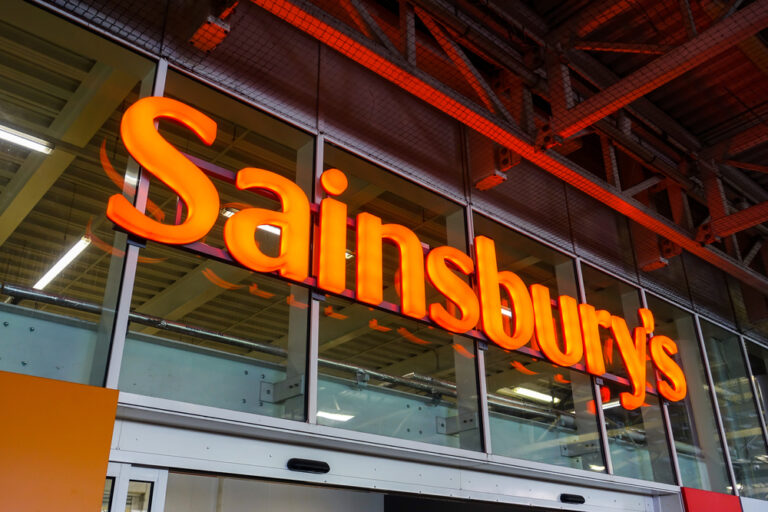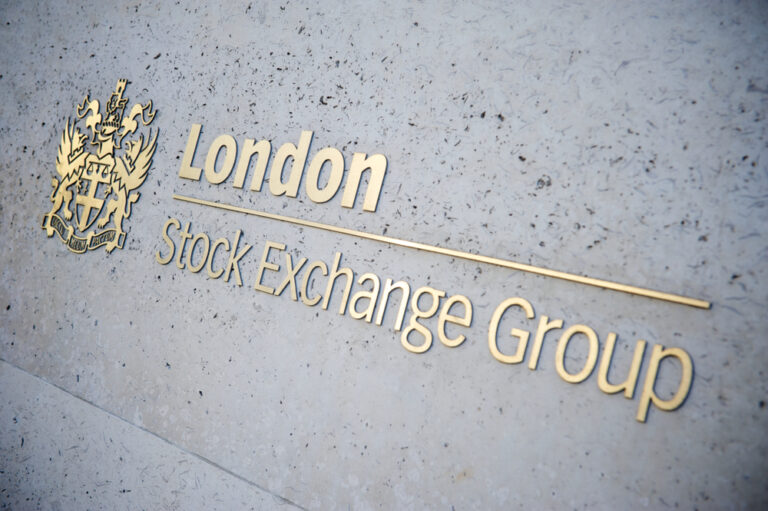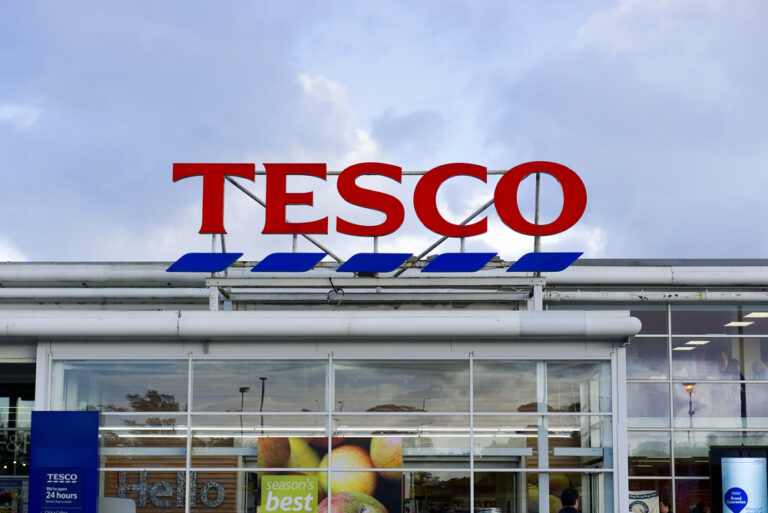Donald Trump’s approach to tariffs has created an opening for investors to buy shares at knock-down prices.
The market is rife with dislocations and mispricing. Ask most seasoned investors, and they will say volatility creates opportunity.
Whether we’ve hit the bottom in equity indices such as the FTSE 100, S&P 500 and Dow Jones remains to be seen. That said, stocks are still on sale, and those with a long-term time horizon can pick up quality shares and equity vehicles at bargain basement prices.
We’ve picked out five shares to consider as the market recovers.
abrdn Equity Income Trust (LON:AEI)
abrdn Equity Income Trust is an AIC Dividend Hero having increased its dividend 24 years in a row. In times of uncertainty, it pays to have some stability in your portfolio, and this trust provides just that.
Investment trusts have the ability to retain revenue for shareholder distributions in future years, and this mechanism allowed AEI to increase its dividend during the pandemic, even when many of its portfolio companies paused or cut dividends.
The trust invests in high-quality UK equities with names such as Imperial Brands, M&G, Barclays, and Shell in the portfolio.
Like many of its underlying investments, AEI’s share price has taken a hit since the announcement of Trump’s tariffs, providing the opportunity to buy into the trust and the relative safety of resilient UK bluechips.
With a yield in excess of 7% and the likelihood that the dividend increases again this year, AEI is a solid option for long-term investors seeking to take advantage of declines in high-quality UK shares.
Vietnam Holding (LON:VNH)
The selection of Vietnam Holding is a reiteration from our ‘Top 20 Stock Picks for 2025’ – many of which are looking a little sorry for themselves after Donald Trump’s tariff actions.
Vietnam was hit by one of the highest tariffs by Donald Trump, sending the Vietnam Ho Chi Minh Stock Index sharply lower in the following days.
Many of the world’s leading brands have established manufacturing facilities in the country, and the threat of a 46% tariff has raised serious questions about what the future holds for the operations of brands such as Nike, Adidas and Apple.
Vietnam was one of the first countries to get in touch with the US president after the announcement, and reports that the country was seeking a zero-tariff solution sparked a sharp, albeit short-lived, rally in global equities on the Friday following the announcement. Should a zero-tariff solution, or as close to zero as possible, be achieved, Vietnam may continue to hum along relatively unscathed.
The Vietnam Holding Investment Trust was inevitably hit by tariffs, but one could argue that the extent of the decline presents an opportunity for investors.
When we talk of dislocation of asset prices, VNH is a great example. Much of Vietnam Holding’s share price decline is the result of an expansion of the trust’s discount-to-NAV (now around 10%) as opposed to destruction of the portfolio’s value.
The VNH portfolio is heavily weighted towards technology companies and banks that are more exposed to the domestic market than overseas trade, especially trade with the US. Indeed, companies such as FPT, the trust’s largest holding, do a lot of business with Japan and very little direct business with the US.
Of course, a general slowdown in the Vietnamese economy will be unhelpful, but the VNH trust has little exposure to companies that will be directly impacted by tariffs.
The threat of tariffs could also prove to be beneficial to Vietnamese stocks. The country has been pursuing an emerging markets status and authorities are likely to expedite efforts to secure promotion from a frontier market that promises to open the doors to a wave of foreign capital into the equity market. Trump’s tariffs will have little impact on this.
VNH’s management is seeing the dip in shares as an opportunity and bought back 38,895 shares at 311p the day after Trump’s announcement.
Taylor Wimpey (LON:TW.)
Taylor Wimpey and the rest of the UK housebuilders may actually benefit from Donald Trump’s tariffs if they force the Bank of England’s hand on interest rate cuts.
While tariffs could lead to some job losses in the UK, any slowdown in the UK economy is likely to prompt a reaction from the BoE in the form of interest rate cuts. This would bolster demand for homes.
The extent of the UK’s job losses to a 10% tariff will likely be contained, avoiding any substantial economic downturn that would see a dramatic housing market slowdown.
Indeed, a slight slowdown in the UK housing market may be the catalyst we need for the UK government and BoE to act to spur demand for new build homes.
Cost inflation will be a concern in the new era of tariffs, but Taylor Wimpey’s supply chain is relatively straightforward, with materials and labour making up the large part of costs. Materials are likely to rise, while Labour costs will probably flatline and may even go down.
Taylor Wimpey trades at 12.5x historical earnings compared to 14.7x for Barratt Redrow and 12x for Persimmon. It isn’t the cheapest housebuilder on an earnings multiple basis but its dividend is very attractive.
The company has a policy of paying out 7.5% of its net assets per year, which translated to 9.46p last year – giving Taylor Wimpey a yield of around 8.9%.
Given the macro conditions, it’s likely Taylor Wimpey cuts its dividend this year. But even if it slashes it by 20%, it would still yield more than most FTSE 350 housebuilders. Last year, the dividend fell by just 5% despite profit for the year falling by 37%.
The underlying long-term structural demand for homes in the UK underpins Taylor Wimpey’s investment case.
GenIP (LON:GNIP)
Another reiteration from our ‘Top 20 Stock Picks for 2025’, GenIP is quietly delivering on its growth targets and the recent drop in AIM-listed shares across the board makes shares all the more attractive.
The AI analytics company has announced contract wins totalling over $400k so far this year and has said it’s actively engaged with potential new customers.
GenIP specialises in helping technology transfer offices accelerate the commercialisation of their technological discoveries and is winning news business in a diverse range of geographies.
Recent announcements reveal new clients in Singapore and Saudi Arabia, with marketing efforts ongoing in Asia and the Americas.
The company recently revealed results for its first year of incorporation, which included the listing of the firm’s shares on AIM. Costs relating to the IPO made up a large part of the cost base, resulting in a loss for the period. Stripping these out and making a rough projection of orders based on what they have recorded so far this year suggests they are heading for profitability later this year – no mean feat for an early-stage tech firm.
Antofagasta (LON:ANTO)
One of the higher beta FTSE 100 shares, copper miner Antofagasta took a beating in the days after the tariff announcement in line with a sharp sell-off in copper prices.
To consider Antofagasta, you have to take a glass half-full approach to the global economy and assume that, over time, demand for natural resources will follow long-term trends.
Antofagasta recently reported an increase in revenue and profits, which was helped by increased production and higher copper prices. Copper prices have clearly taken a hit, and if they remain at their current depressed levels, they will feed into ANTO’s profitability in the coming quarters.
However, investors must consider whether eradicating around a third of the group’s market value is overdone. Many metrics suggest it is.
The company is now trading at less than 5x 2024 EBITDA. EBITDA may fall if copper prices remain low, but not to the extent that would make ANTO look expensive compared to historical averages or some of its peers.
The business is highly cash-generative and ended 2024 with over $4bn in cash.
In addition to attractive valuation metrics and cash position, ANTO has expanded its EBITDA margin, and mining operation efficiency is improving.











